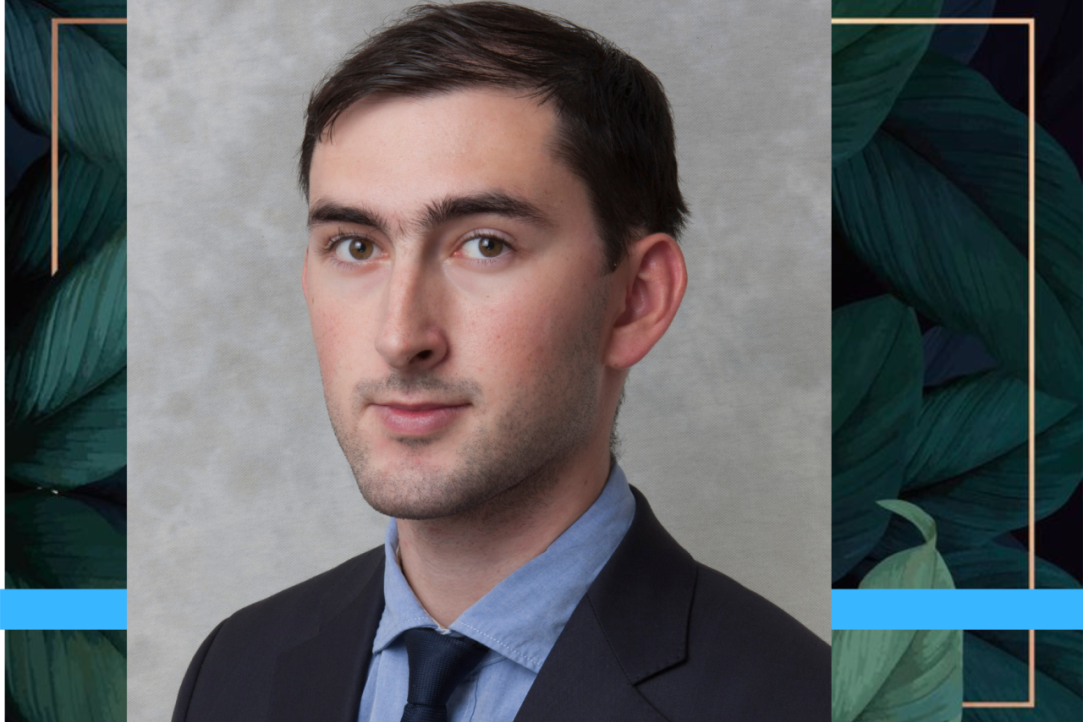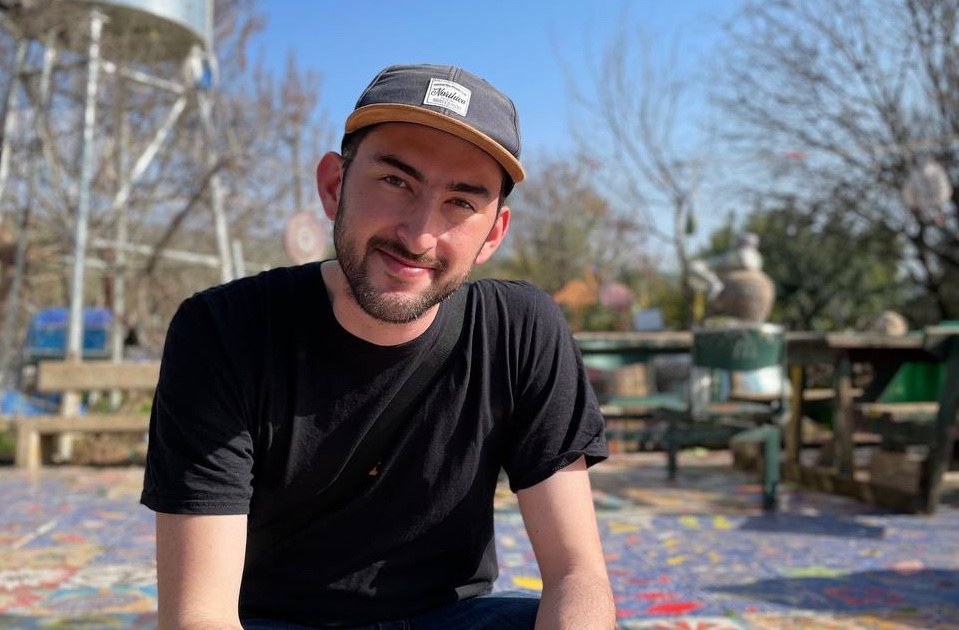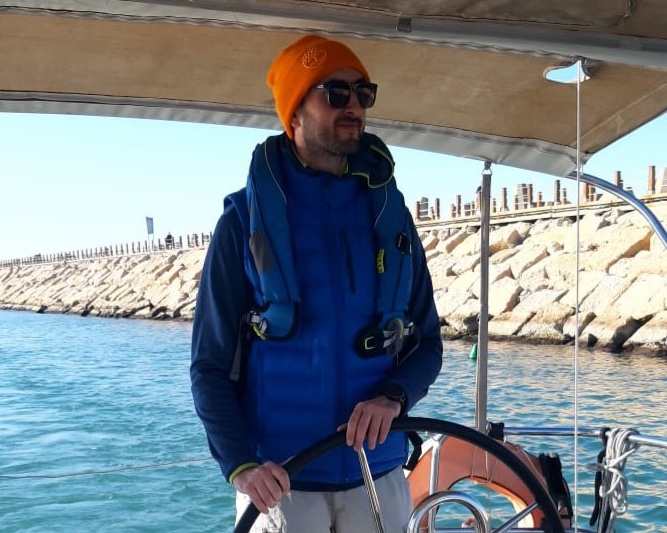"When you are truly goal-oriented, your only limit is you"

Gleb Zinkovsky earned his bachelor’s from ICEF in 2014. His job as an Associate at PwC (Cyprus) and E&Y (Moscow) was followed by taking Yandex Practicum course, which led Gleb to start a job in fintech. Currently a product analyst at fintech company Jasper (Israel), in this interview Gleb shares what it’s like to start as a tax consultant, steer towards business analytics and finally discover your true calling in product direction.
First acquaintance with HSE University
My choice of a degree was largely influenced by my father, who is a graduate of HSE and currently administers one of its master’s programs. I was about ten when my first acquaintance with HSE took place at the Open Day event I was taken to. The school I studied at had a concentration in physics and mathematics, so my future degree would naturally be expected to be in math. It just didn’t have to be in abstract math. One option that seemed a good fit was economics. What was more, it could be learned in the vibrant and progressive setting of my alma mater. I took the preparatory course and then won a prize from academic competition, which made me eligible for fast-track admission and state-funded place on HSE Faculty of Economics program.
Yet, shortly before admission, I happened to attend the Open Day at ICEF and had thus learned there was an English-taught, double-degree programme, run by HSE and the University of London (UoL). Dad said, “If you think you know why you need it, go for it.”
The opportunity to study at the University of London without physically leaving home looked a practical choice and I went for it
I enrolled at the time when ICEF had Jeffrey Lockshin. And I can now say that my years at ICEF are the best so far because of HSE’s spirit of freedom that could be experienced to the fullest at that time at ICEF. It was the freedom of attitude and it nurtured respect for student initiatives. High school seniors, once they are students of HSE, they begin to understand the value of the time their teachers spend on them and that the things they learn at ICEF go beyond economics alone. Here, you can expect to be taught to learn, think, and adapt to new tasks.
In my first year of study, I focused mostly on training my mind to think in English and prioritizing tasks correctly, so that I could pass all the exams on my first and only attempt. In my second year, I chose to specialize in Economics and Finance but decided to change to Banking and Finance in my fourth year after my internship with HSE Innovation Center. It helped me realize I should rather be focused on investment-related courses as what would help me in my future job as consultant or financial analyst.

My interest in multinationals and their finance operating models has largely determined the theme for my coursework and thesis, all supervised by Maria Kokoreva. My interaction with Maria turned out highly productive and had a major influence on my studies and future career.
Consulting and working abroad
By the end of my study at ICEF, I was completely sure I wanted to work in consulting. One of the companies I applied was PwC and its office in Moscow. It turned out they were hiring for their office in Cyprus, and I thought it was a great opportunity for me to enter the profession I liked best. And besides, the job was abroad. So, in 2014 I became a strategic tax consultant advising multinationals with operations around the world on tax optimization strategies. Much of the knowledge I received at ICEF did prove useful in my job, it’s just that it had to be applied it in a completely different way.
In practice, everything from basic economics to corporate finance to accounting has come in handy
Taxation wasn’t a part of our curriculum, so my work in Cyprus turned out an exciting continuation of my studies. I could see how real businesses could structure themselves for optimal performance, how they organized their corporate cash flows, and, most importantly, why taxes made an essential part of each and every modern company’s performance. The year 2014 was when the Russian economy embarked on its deoffshorization policy, and for this reason the area of consulting I was involved in was experiencing wild fluctuations, with projects differing greatly in terms of scope and complexity. It required me to stay updated on the trends in tax and corporate legislation of Cyprus and Russia, as well as other countries of my clients’ operations.
Staying work-drawn as a lifestyle
I moved back to Moscow in 2016 for a job as a corporate tax consultant at Ernst & Young Global Compliance and Reporting. Our team seemed to be really getting a kick out of the crazy pace we kept with. We were a result-driven team, and it was great to see how much we were able to accomplish on our own and as part of the team within very short timeframes.

Like many of my colleagues at the Big Four, at some point I started thinking of maybe going into business and finding my niche to fulfill my passions and ambitions. I turned to my friends at Yandex and they introduced me to product analytics and management – the process that proved no less captivating and fascinating in complexity than consulting. In 2018, I decided to leave E&Y for a career track in business analytics.
Converting to fintech
In 2018, I landed an internship at I Know First, an Israel-based fintech startup that provides AI-based forecasting solutions for capital markets to uncover the best investment opportunities. Together with my academic background in finance, my extensive experience at such well-known companies as PwC and E&Y played a decisive role in being delegated the range of tasks that I performed.
My role as an intern encompassed business analytics. What I did was forecasting the value of shares being traded on the global exchanges and substantiating my calcs on paper in the form of articles. I was then offered a post of senior business analyst. And because it was a small startup, my range of functions quickly grew. New skills – such as programming in Python and R, organizing and configuring internal processes from product design to online sale to end users – had to be learned on the go.
The training I received at ICEF has been a great help in learning those new skills – whenever there is something to learn, you just get down to it and learn
I left I Know First in July 2021 to embark on a new job as soon as tomorrow, which was very much in the spirit of the Big Four.
By that time, I firmly decided that I wanted to be in fintech and that the track for me to follow in the near future was in product analytics and management. That decision was prompted by Yandex Practicum course. I did it in parallel with my previous job and it brought my analytical skills to a whole new level. The portfolio of projects that I ended up with was diverse enough to make me eligible for a wide range of jobs in many companies. But, my primary interest was still in Israeli fintech companies and banking firms. I got a job as a data analyst at Jasper, the company specializing in banking services in the USA, and joined its product team.
Flexible thinking is key to success
There has recently been a shift in ICEF’s learning strategies. The curricula now include courses in programming and machine learning. I envy the current students their access to them, although I can’t say my own background from ICEF is missing out on fundamental knowledge of finance or self-learning skills.
At ICEF, there is a well-established interaction between students and faculty. This gives ground for self-actualization and personal empowerment – through, for example, individual assignments as part of coursework or group projects. The discussions that we had with fellow students and teachers, many of whom have ample industry experience, have been a good way to help us figure out the most challenging of concepts, organize our knowledge and shape professional attitude. This kind of mindset explains why many ICEF graduates develop a passion for consulting as their future career.
Israelis have a word for it – chutzpah. It means the quality of audacity, for good or for bad, that drives you to go for what you want. You have chutzpah if you have this “fire in the belly” that makes you feel prepared to do whatever it takes to achieve success. This would be what ICEF instills in its students without actually meaning it. When you are truly goal-oriented, your only limit is you. The people in my class did know what they wanted. They studied at a pace comfortable to them, and they discovered their personal styles of acquiring and using knowledge. ICEF teaches its students freedom – the most valuable outcome of study. This drive can spur your interest in finance and it can give you a boost of tenacity to make you able to perform better in whatever you do. Seeing the fruits of their labours gives the graduates of ICEF sheer bliss. They know the price of their time and knowledge.
I think ICEF graduates find it relatively easy to convert from finance to product management or related fields because we know how to be flexible and efficient in situations where we are unexpectedly required to be fast learners. If an ICEF student asked me what helped me make my way from A to B, my answer would be flexibility of thinking and curiosity. I can’t even remember a time in my life when I wasn’t willing to learn.